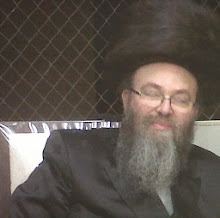B"SD
I would like to offer three thoughts on Chodesh Elul to help understand the magnitude of this special month:
1. Helping others do Teshuvah
ואשר לא צדה והאלהים אנה לידו ושמתי לך מקום אשר ינוס שמה
Here the pasuk (Shemot 21:13) speaks of the Arei Miklat (as we can see the reishit tavot: Ina L’iado Visamti Lich). As such, we derive that Elul is special for it is established to forgive unintentional averot during the year. Moreover, following each averah, the person must seek "a city of refuge", that is, a proper (spiritual) struture to allow the full contemplation of his transgressions' consequences, the chesbon nefesh followed by teshuvah.
2. Asking Hashem for help
The yetzer hara tells us that our sin is a small thing. It does not allow us to contemplate its implications, including the wedge that sin drives between ourselves and our Heavenly Father, and the darkness that envelops all of the spiritual worlds as its consequence. A person who is oblivious to the reality of the horror of sin dwells in utter confusion. The holy sefarim speak of a state worse than Gehinom. Some people wander through life, oblivious to the requirements of law. They sin without any awareness of its seriousness. They also can for decades without experiencing any Divine retribution! Hashem leaves them in their state of confusion. When they die, they are treated similarly. Even Gehinom is inappropriate for them. They continue to wander without judgment or accounting in the Olam HaTohu, truly an existence of astonishing chaos. To a certain extent, the Olam HaTohu spills over into our world, experienced by people still alive. They glide in and out of the Yamim Nora'im, oblivious to their sanctity and meaning, as if unsure in which world they reside.
2. Serving Hashem with love
Elul is a time to ask Hashem for things you need, for since Ani Ledodi V'Dodi Li is Elul, this a time when the love relationship between G-d and the Jewish people is heightened. And it is vital to raise mayin nukvin during this period. This means a real need to intensify the desire of the "groom" for the "bride". So, asking for a gift for the groom is like saying: "show me your desire and I will be yours for life". Perhaps that is why once the Lubavitcher Rebbe related that there is a Polish jewish costume where the groom and bride receive small pieces of papers from the guests with requests, who perhaps could not attend the ceremony, so the couple under the tremendous kedusha of the celestial gates of the chupah could ask Hashem for these gifts (requests). The Rebbe, it is told, was against this costume, for it could "affect" their humility (as the requests could indeed be answered). Yet, the Rebbe said the guest themselves could ask for what they need during this period, that is, the wedding ceremony (Rebbe on parashat Shoftim 5713, 2 Elul in the Cabalat Panim R' Mordechai Dubinsky's wedding). Right now, Bnei Israel is in very close relationship with Hashem, and each and every yid, the "individual guests" witnessing this great love between Hashem and the Bnei Israel, can ask for gifts that pour out from this intense love.
Chodesh Tov!
Chodesh Tov!
Rabbi Avraham

No comments:
Post a Comment